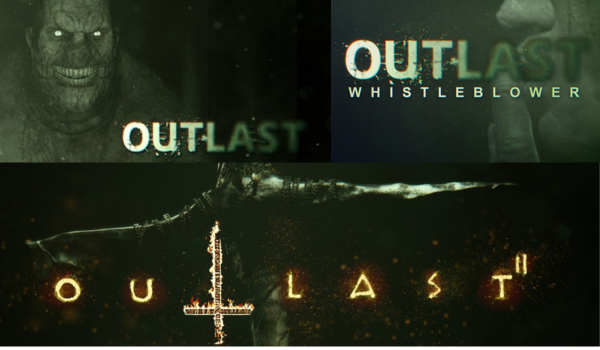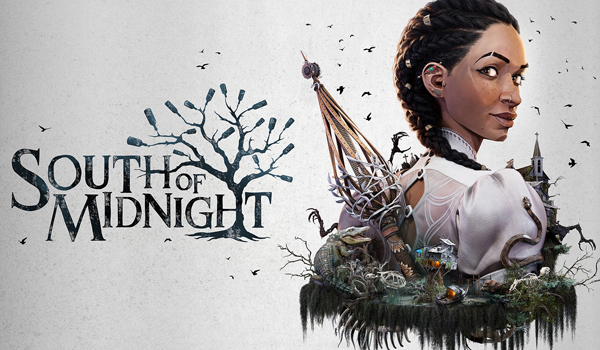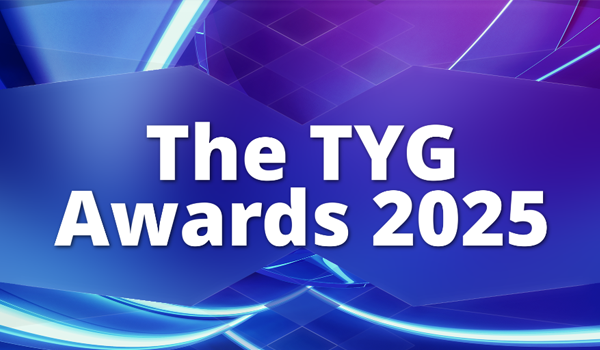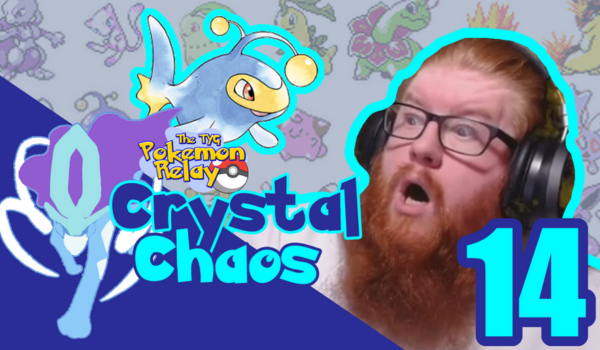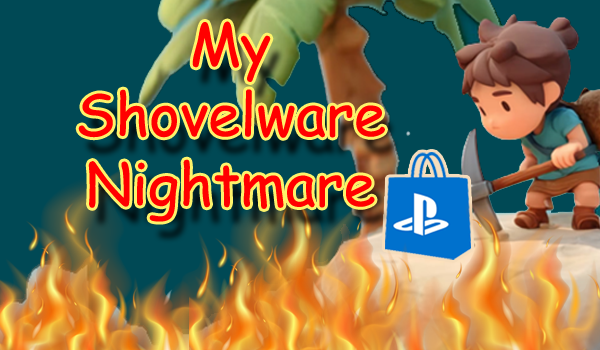
Cosy simulation and crafting games are my bread and butter. I have played thousands of hours of Two Point games alone. However, our long-time readers will know my truest passion in gaming: PlayStation trophies. Enter My Tiny Island.
My Tiny Island came across my PlayStation feed while I was laid up in bed with some kind of plague. I wanted something to keep my brain busy. Something colourful, but low effort. And most importantly, it was cheap. Sitting under £2, it wasn’t so much that I would be upset if I didn’t enjoy it or finished it quickly. It was the perfect playmate for my consumption.
Perusing the PlayStation Store for cheap games and trophies has been a hobby of mine for some years now. It was a regular slot on my Twitch streams and inspired our Trash or Treasure series. I love cheap games, but even I have my limits. And so, Dear Reader, I would like to take you on a journey. But for that, we have to go back a little.
What is My Tiny Island?
My Tiny Island is a cute game where you direct a simple character around a deserted island in search of crafting supplies. You need to collect, craft and unlock different items to further explore the island and find more survivors, until ultimately building a raft to escape the island.
It looks and plays like a mobile game. You simply walk up to things, and your character will harvest and collect what’s closest to them. Walk up to crafting tables, and items will pour from your bag and begin auto-crafting. This makes for a simple yet engaging gameplay loop, and I happily played My Tiny Island to the very end.
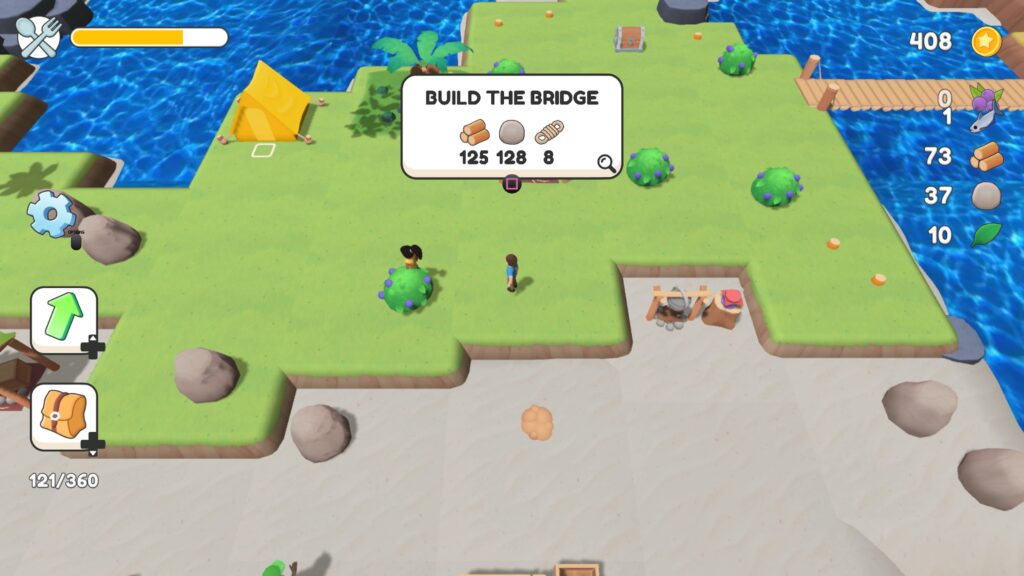
Player and table upgrades make things easier to manage as your resources and island expand. These got expensive, but you can easily sell everything in your bag and replenish the items with little worry. There’s no logical reason for this, as there is no one to sell to, but it helps with your progression.
It had some bugs, sure, but I got what I wanted out of it. Which is when I thought I would check out the trophy list, only to find it missing. Thus, I turned to Google and PSNTrophies, which is where this rabbit hole truly begins.
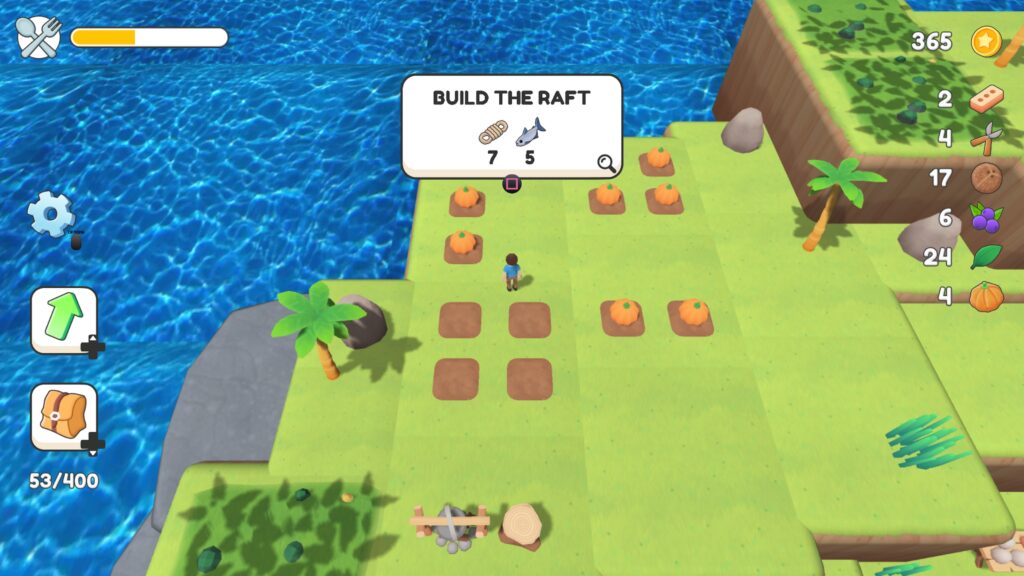
The Rabbit Hole
Before we go down this rabbit hole, I would like to make something clear: My Tiny Island is not the focus of this adventure. It was merely the inciting incident of my journey. I would give it a mid-review, and, had I played it for Trash Or Treasure, I think I would have scored it well until finding the trophies missing. Equally, I’m not looking to send any hate to any other games mentioned. However, this was the catalyst for my frustrations and where our journey begins.
The Descent
With my trophy list missing, I decided to search My Tiny Island on Google to see if others had come across the same problem. This is where I found something rather concerning.
The below screen shot comes from Google and links directly to the My Tiny Island Store page, yet the image holds no resemblance to the game itself. I thought it strange and thought perhaps it was just a game with a similar name. However, I did find this below screenshot on the console’s store page.


Even the online store page lacks any in-game footage and from the 85 ratings, you can see people are not happy with their purchase. I did find the Nintendo Switch Store page for My Tiny Island has screen shots and a description unlike the PlayStation Store. The screenshots from the actual game that I found also boast camera angles I was unable to recreate myself it being a top-down fixed camera angle.
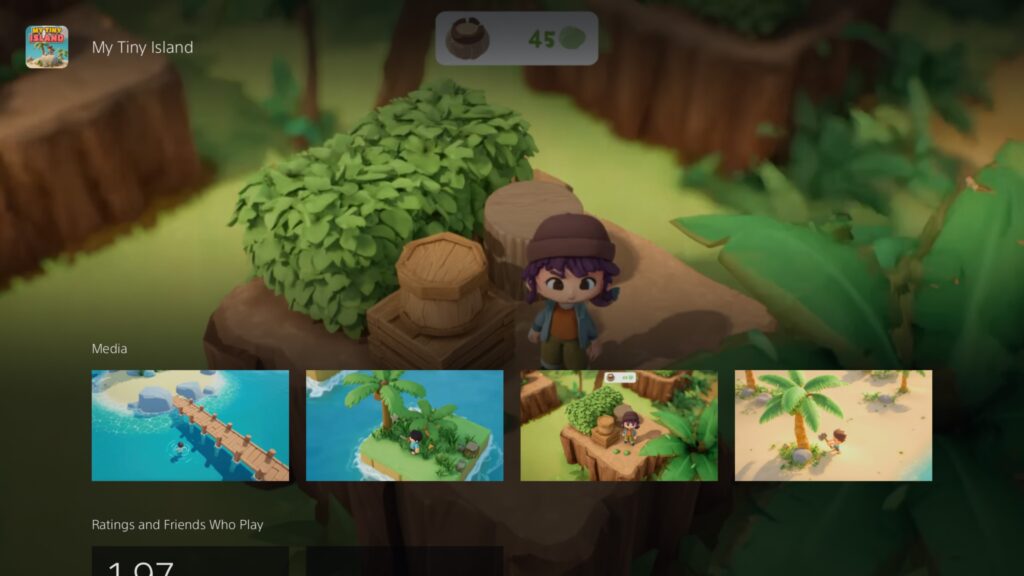
Slop Beyond Slop
Sadly, this isn’t the only example of this on the PlayStation Store. The rampant video game slop on the PlayStation Store has been an issue for many years now. With the rise in AI-generated content, greedy devs saw their moment to shine, churning out low-effort, low-cost video games en masse to the unsuspecting public.
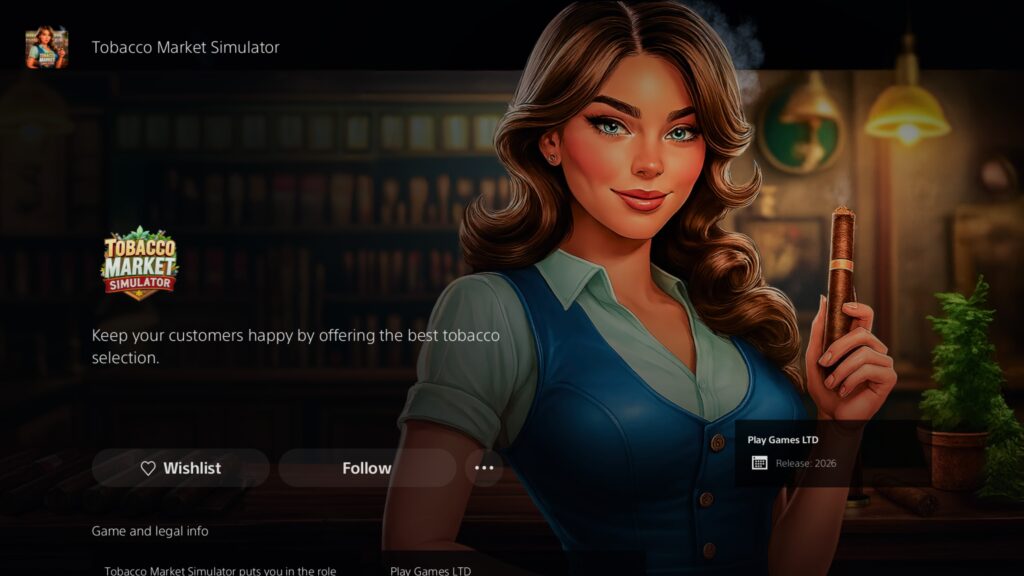
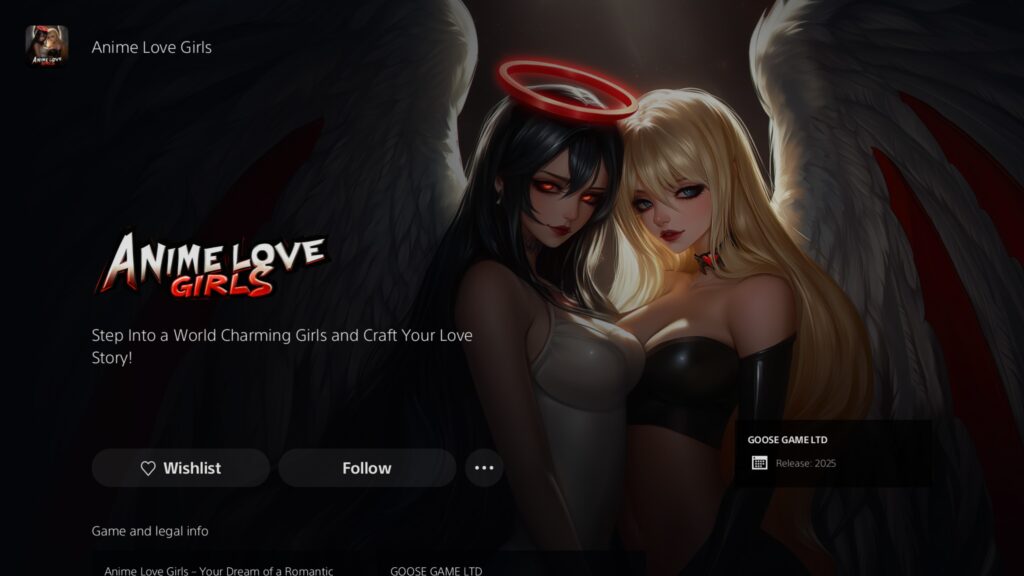
Their use of familiar yet legally distinct imagery is equally as sinister. Did I always want Animal Crossing on the PlayStation? Sure, but this is not it (See Anime Village Online below). The Disney-like characters and generic AI cartoon faces are used to draw players in before offering up a plate of lazy asset-flip slop. It’s gross, and we’ve seen it many times before on mobile app store. Also Anime YOKAI HUNTERS! Don’t be doing our KPOP girlies like that…
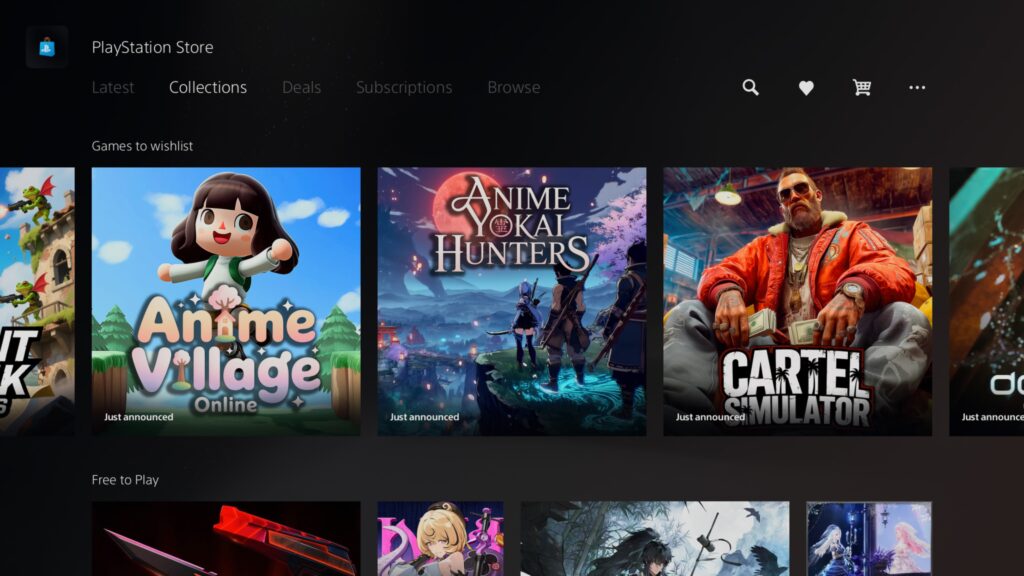
Equally, when a game is less than £1, you really shouldn’t be expecting anything spectacular. Even so, with all these AI-generated thumbnails and misleading screenshots, I have to wonder at what point these game companies could be accused of false advertising. But at least the games are original, right?
The Death Of Creativity
There was a time when creativity filled the Internet. Flash games where you put random animals in blenders or dress up 2D pony characters dominated the landscape on sites run solely on adverts. The games were dumb, fun and created by people who actually cared about their game development. What we have now, however, is nothing of the sort.
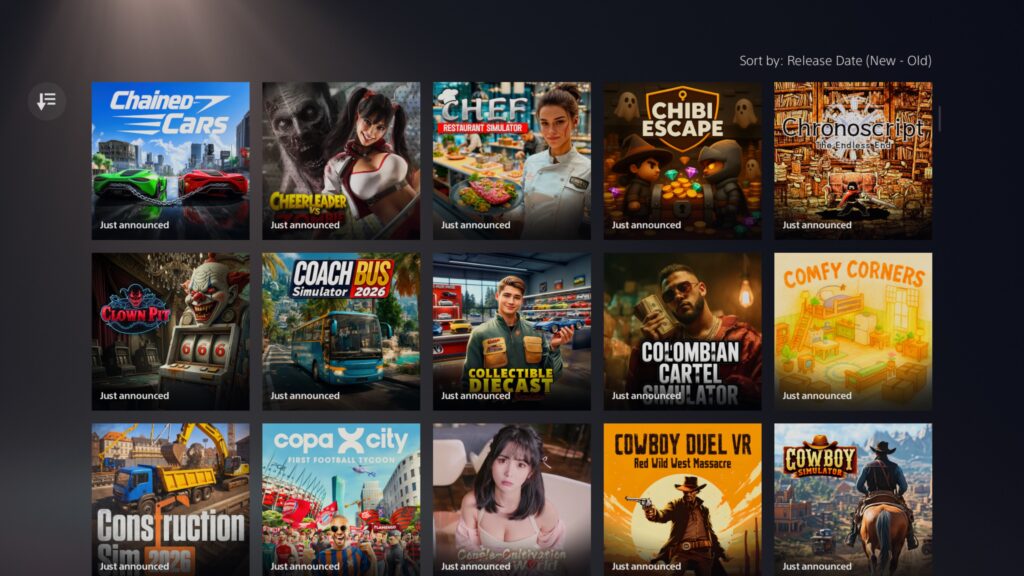
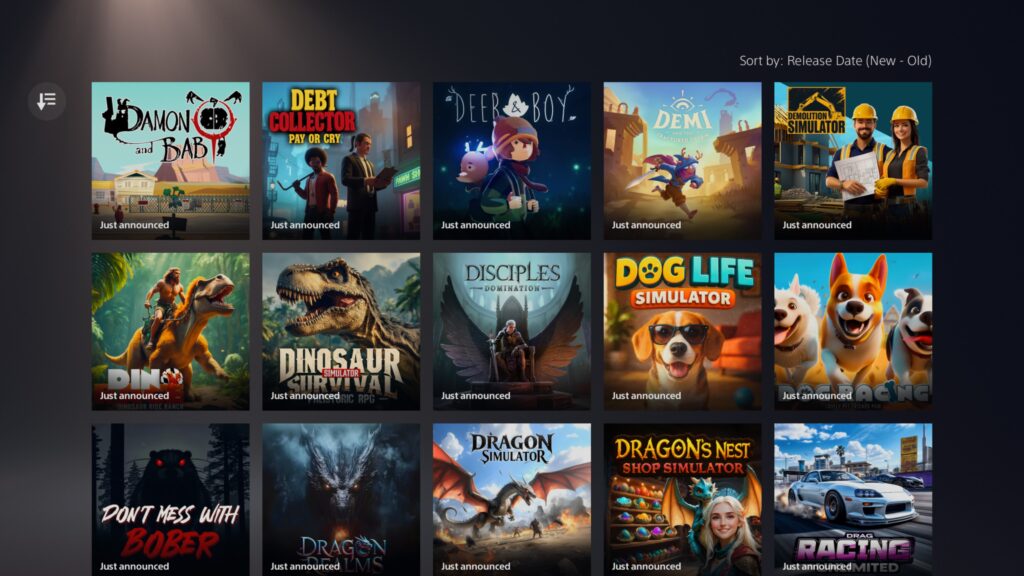
My feed is polluted with copies of copies, no different or better than the previous. Oftentimes, these games are somehow worse and lazier than what came before, preying on trends and similar-sounding names to essentially dupe gamers into purchasing their products. I’ve picked up games, thinking they were the original only to find they are a cheap clone on multiple occasions and see even more set for release in the future.
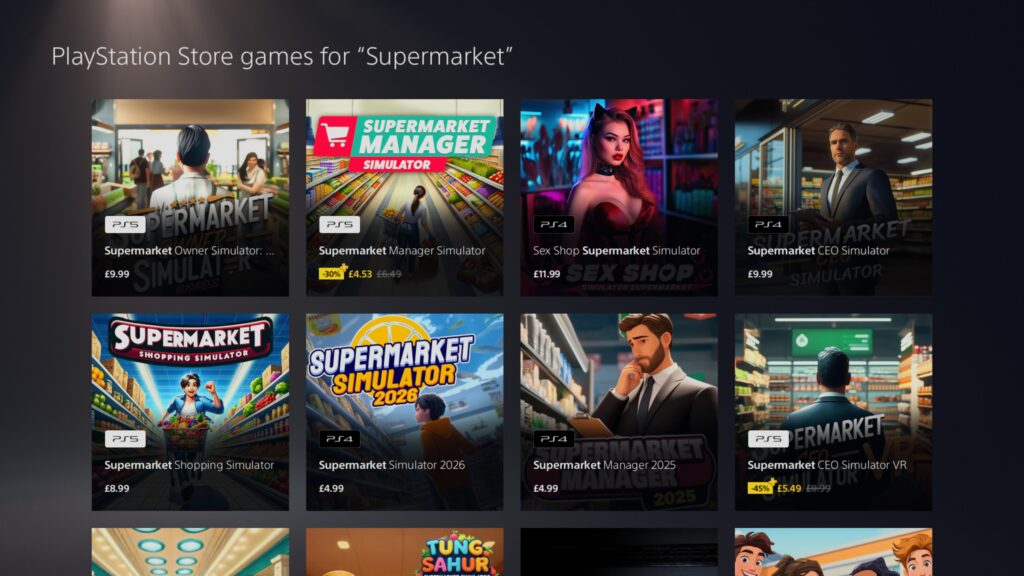
The supermarket simulation game clones are perhaps the most notorious for this one. Searching it on the PlayStation Store now turns up hundreds of simulated supermarket type games, each boasting the same asset packs and tools as the next one with only a slight variation on theme. Each entry surely has their merit, Supermarket Together has become a popular multiplayer stream in our community simply because it has mass-multiplayer, but what do they offer players to make them chose one game over the other?
One thing which surprised me was the number of hole digging simulator clones there were. A Game About Digging A Hole was one we reviewed a while back, and I was pretty chuffed to see it on the PlayStation Store. That was not, however, the game which I bought. No, once again the store played upon my ignorance, and I found myself swindled.
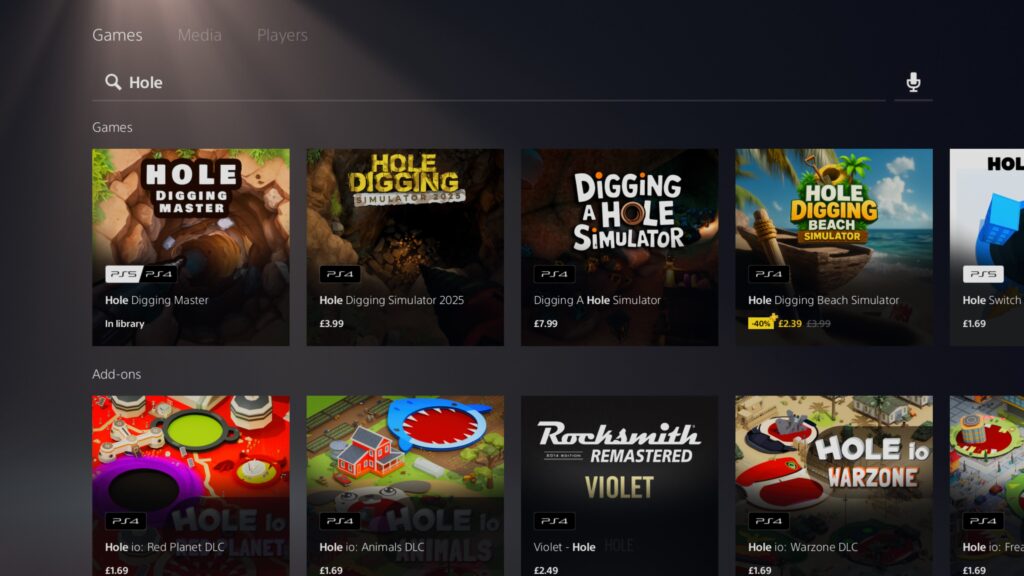
But at least the games are fun and work well, right?
Quality Control Who?
So, the game you bought wasn’t what you thought it was, but you’ve made the best of a bad situation anyway. You’re giving it a fair chance in hopes of getting your money’s worth and maybe even a few trophies along the way. Which is when things start to go really wrong.
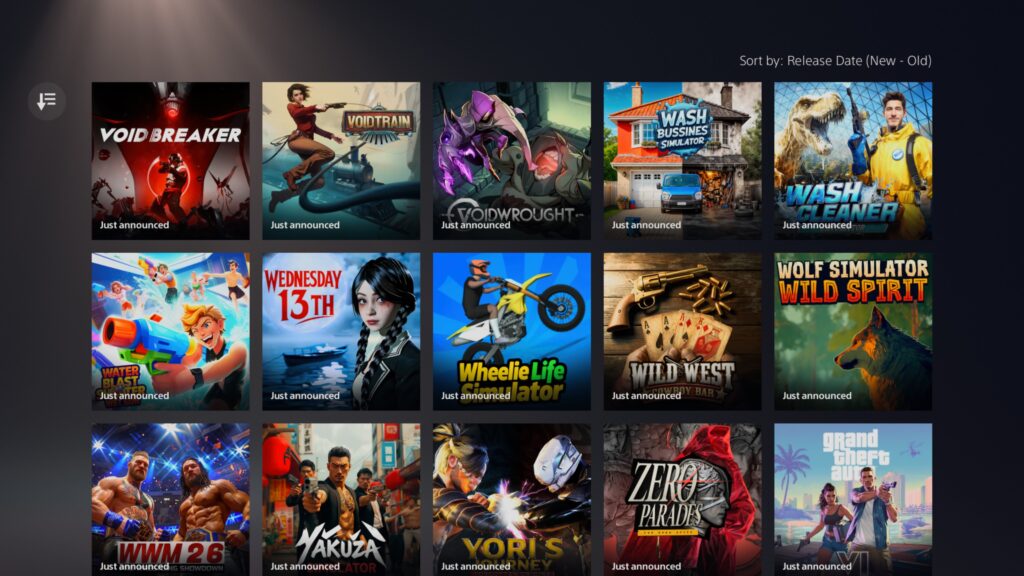
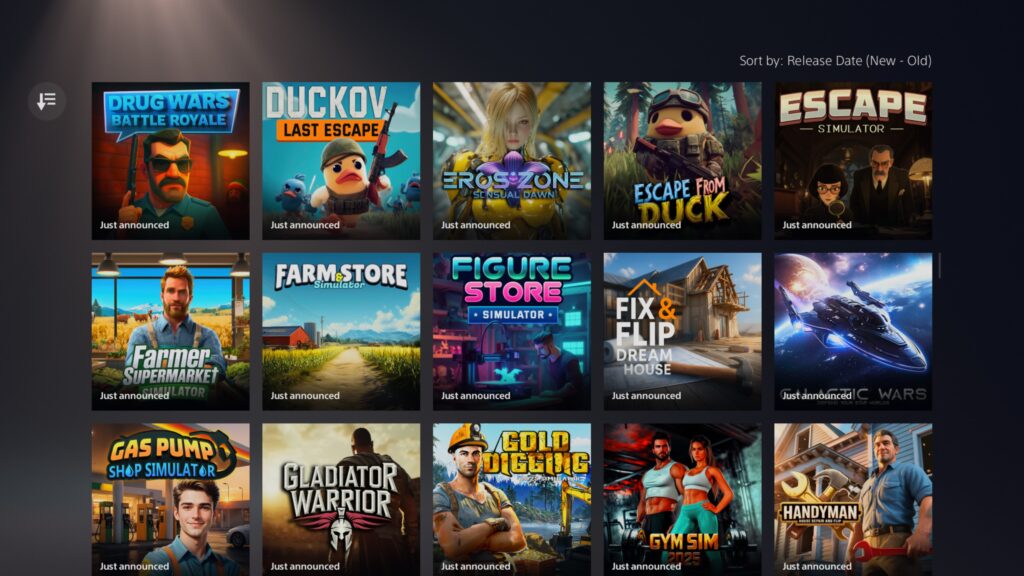
As a content creator and author, I know things slip through the cracks. Bugs and glitches happen. Heck, they can even make things more enjoyable and entertaining. But now, as I ventured deeper into this rabbit hole, I found myself standing before a mountain of disappointment unlike any other. A sad post on PSN Profiles titled simply: All known non-syncing trophy lists.
Trailing this forum page to the end, I saw literally hundreds of games presently on the PlayStation Store that would be considered “Scamware”. Shop simulators, tapper games, cheap puzzlers: all games that were recently released and have already been abandoned. Games I had in my Wishlist. And perhaps worst of all, there were games I was asked to review as a part of TYG. Abandonware is not a new concept within the Steam community, but I never thought I’d be comparing games on the PlayStation Store to something abandoned in Early Access.
So now, I have to ask: if a game is unoriginal, unplayable, and doesn’t even sync trophies to your PlayStation accounts, then what is the point? And, more importantly, why is it all over my PlayStation feed?
The Future
Although this adventure began on a sunny, tiny island, it ends at the foot of a fiery mountain that threatens to blow its top at any moment. These trend-clones can be fun, and bolster my trophy count (when they work), but there’s something to be said about originality and quality control.
We’ve seen games inspired by others that have taken the genre and turned it on its head. The Metroidvania and Souls-like genres were born from just a handful of titles, and yet their mechanics can be seen in any number of popular, iconic, and original games that would not be considered clones in any regard.
Inspiration sits at the heart of creativity. It rests in the souls of the artists who came before and will bloom in the hands of those still to come. If we are to survive the onslaught of games from scam companies, we need to uplift the indie developers who publish creative and unique titles. We need to continue supporting developers who nurture their projects and keep patching the software after launch, while also chastising games that should never have made it to the PlayStation Store to begin with.
Was My Tiny Island a bad game? No. But it has opened my eyes to the broader systemic issues present on the PlayStation Store.
What are your thoughts on this? Let us know in the comments.


